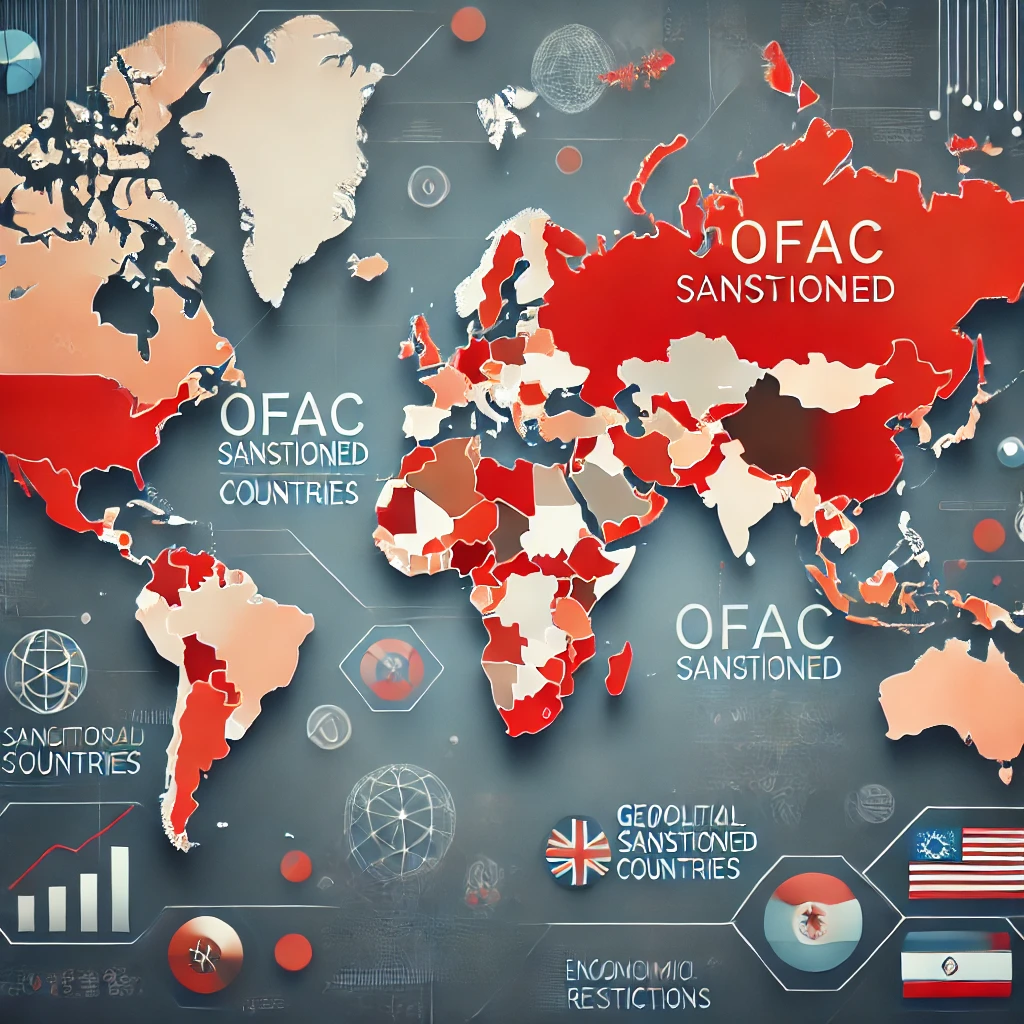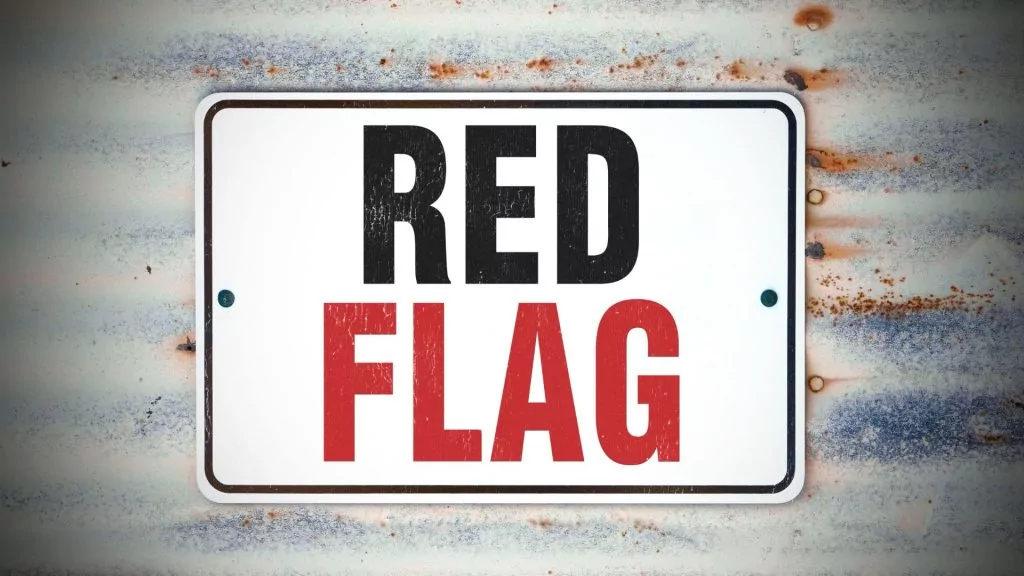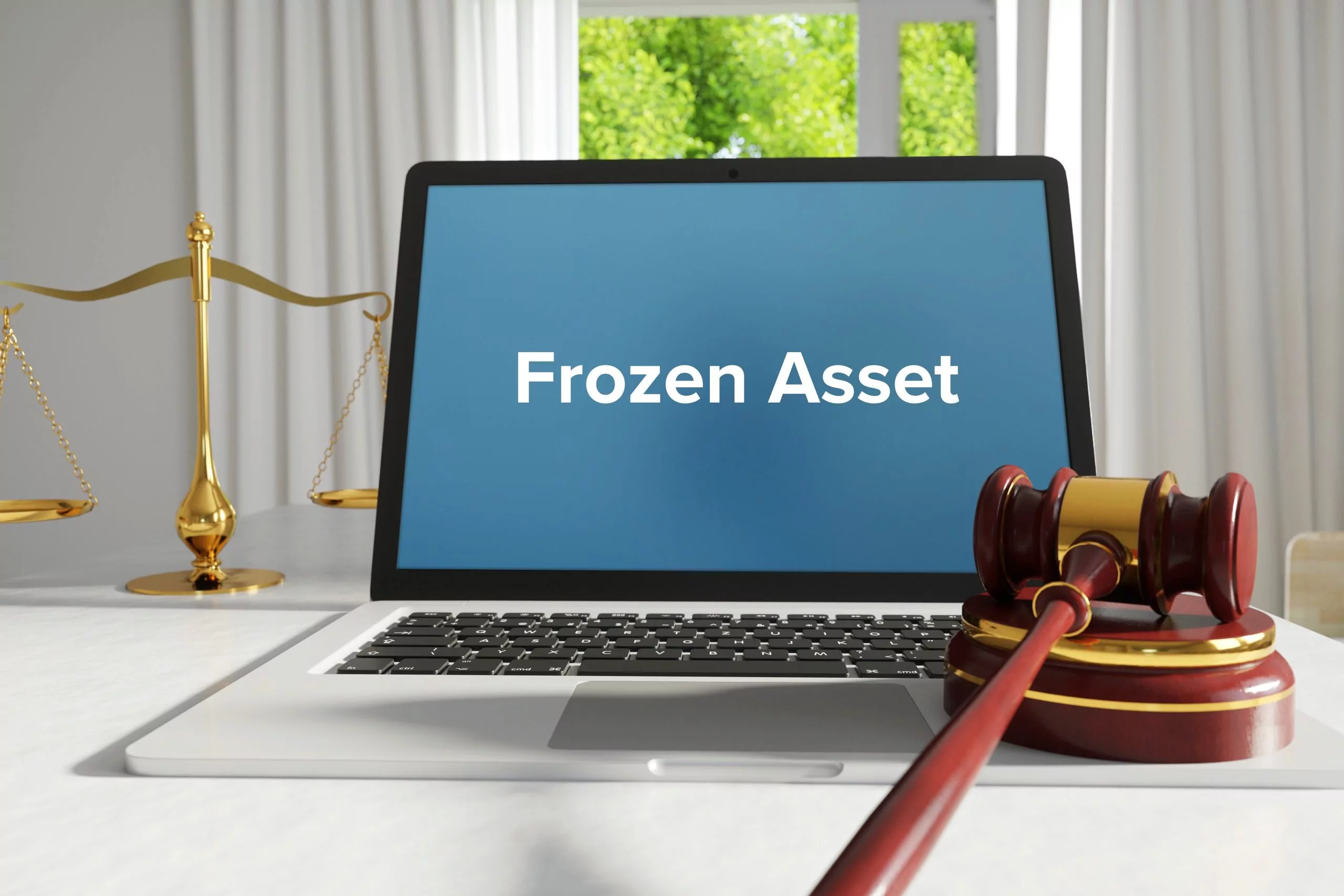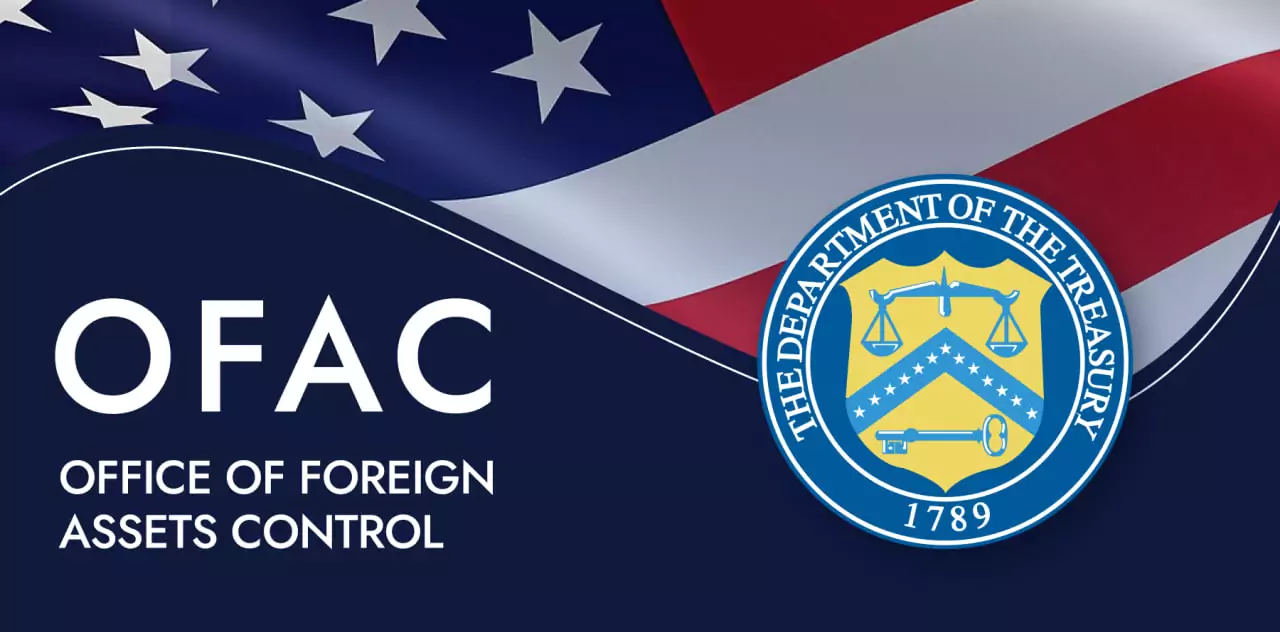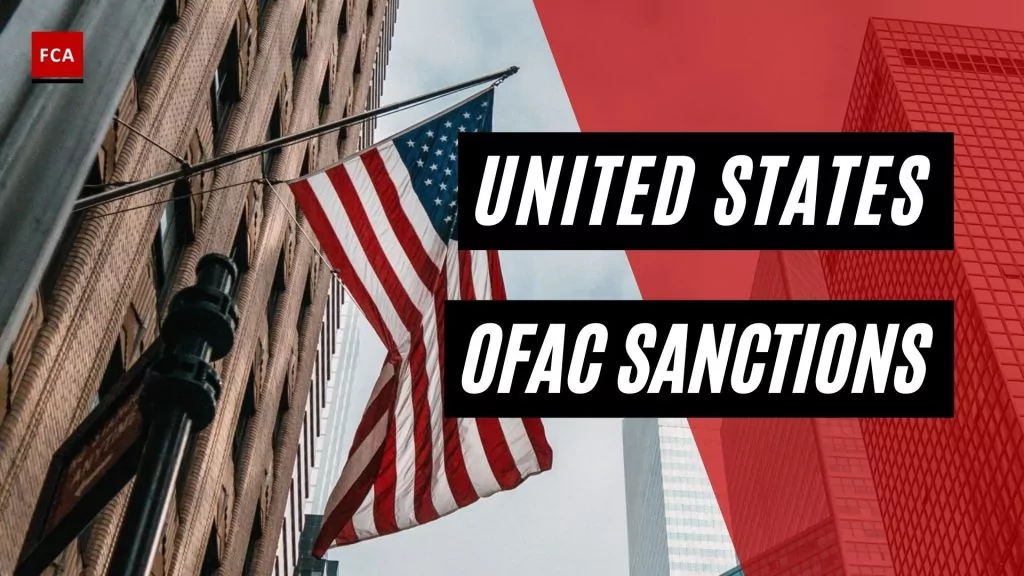
Who is required to comply with U.S. OFAC sanctions?
The economic and trade sanctions, as well as the transaction regulations and programs imposed by the Office of Foreign Assets Control (OFAC) of the US Department of the Treasury, play a crucial role in the global financial system and significantly impact international economic and trade relations. Complying with OFAC regulations and these sanctions programs is essential for ensuring financial security and preventing illegal transactions.
Let’s examine the individuals and entities that need to comply with these economic and trade sanctions, which transactions and activities under the various OFAC regulations apply, how these programs are applied, and the potential consequences of non-compliance.

Understanding OFAC Sanctions regulations
OFAC sanctions programs are measures taken as part of U.S. foreign policy to put pressure on countries, organizations, or other individuals and entities that pose a threat to national security, foreign economic interests, or the foreign policy of the United States. These measures can include sanctions programs that:
- Asset freeze: a prohibition on access to the financial resources of individuals and organizations subject to sanctions. This means that any assets within the jurisdiction of the U.S. or in contact with American financial institutions can be frozen;
- Transaction ban: restrictions on conducting financial transactions related to individuals or organizations listed in sanction lists. This can include a prohibition on providing services, selling goods, and other types of business operations;
- Ban on assisting: Restrictions on providing economic aid or investment capital to individuals and organizations subject to sanctions.
OFAC establishes and maintains sanction lists and the blocked persons list. One example of the most comprehensive sanctions is the Specially Designated Nationals and Blocked Persons List (SDN List). This specially designated nationals and blocked persons list is regularly updated and includes individuals whose assets are frozen, or blocked, and with whom U.S. persons are prohibited from doing business.
OFAC Sanctions Objectives
Санкции, введенные в соответствии с постановлениями Управления по контролю за иностранными активами (OFAC), направлены на достижение нескольких ключевых целей, которые направлены на обеспечение национальной безопасности и поддержку международной стабильности. Они служат как экономическими и торговыми санкциями, так и инструментом воздействия на субъектов, чья деятельность угрожает интересам США и международным нормам. Конкретные цели санкций OFAC включают следующее:
- Давление на правительства или режимы: Санкции могут быть введены против правительств стран, которые нарушают международные нормы или права человека. Это позволяет оказывать экономическое давление на такие режимы, побуждая их изменить свое поведение;
- Supporting national security: measures can be aimed at countering terrorist organizations and other security threats. This includes freezing assets and banning the financing of terrorist activities;
- Preventing the financing of illegal activities: sanctions help prevent the use of the financial system for money laundering and other forms of financial fraud.
- OFAC can impose sanctions on anyone – From entire countries to individual people and companies. Major foreign firms, banks, and even ordinary citizens abroad can be targeted if their actions violate international laws sanctions regulations, or the interests of the U.S. The most comprehensive sanctions involve Cuba, Iran, North Korea, Sudan, and Syria. For the most recent list of sanctions see this Please visit the OFAC website.
Who Must Comply with OFAC?
Compliance with OFAC regulations is mandatory for U.S. citizens, residents, entities, and organizations, including businesses and financial institutions. Non-U.S. persons may also need to comply if their transactions involve U.S. jurisdiction, such as using U.S. financial systems.
Application of OFAC Sanctions to U.S. Citizens
U.S. citizens and registered companies that through transactions and sanctions regulations find themselves with transactions and sanctions regulations on the OFAC sanctions list are required to comply with established requirements. This includes a prohibition on conducting transactions and sanctions regulations with individuals and organizations listed on the OFAC sanctions list. The compliance process involves:
- Due diligence on counterparties: Companies and individuals should conduct thorough checks on their business partners to ensure they are not dealing with entities subject to sanctions;
- Compliance with reporting requirements: all suspicious transactions or connections with sanctioned entities must be immediately reported to OFAC and other regulatory bodies;
- Training and policy implementation: Companies are required to train their employees in compliance with sanctions laws and to implement internal policies and procedures to prevent violations.
Failing to comply with OFAC requirements and sanctions can lead to serious consequences. These regulations and sanctions include fines and penalties that can reach millions of dollars depending on the severity of the violation. Additionally, violations can result in criminal charges, including prison time, as well as significant damage to a business’s reputation.
Financial institutions
Financial institutions are entities that manage monetary transactions, investments, and other financial services. These include banks, credit unions, brokers, and insurance companies. Examples of financial institutions are:
- Banks insured by the FDIC
- Commercial banks and trust companies
- Private bankers
- U.S. agencies and branches of foreign banks
- Credit unions and savings institutions
- Brokers and dealers registered with the U.S. SEC
- Unregistered brokers and dealers in securities and commodities
- Investment bankers and investment companies
- Currency exchangers
- Issuers, redeemers, and cashiers of traveler’s checks, money orders, and similar instruments
- Credit card operators
- Insurance companies
- Dealers in precious metals, stones, and jewelry
- Pawnbrokers
Applying OFAC Sanctions to Foreign Nationals and Entities
Individuals on the OFAC sanctions list also extend to foreign citizens and companies if their activities affect the American financial system or if their office of foreign assets has business dealings with entities in specific countries that are under sanctions. International transactions: Foreign companies dealing with American financial institutions abroad must comply with OFAC sanctions to avoid asset freezing or penalties. Doing business with American partners: Foreign companies must consider sanctions if they are conducting business with American companies or have operations that involve the U.S.
Sanctions can be applied to foreign entities abroad if their business or financial operations involve American assets or financial institutions. Non-compliance can result in penalties, such as asset freezes or fines, underscoring the importance of adhering to sanction laws for all participants involved in international economic and trade activities, including Iranian transactions. This also extends to research activities, university operations, and financial transactions, all of which must comply with relevant sanctions laws and regulations.
OFAC Licensing Function in Sanctions
The Office of Foreign Assets Control (OFAC) has the authority to issue licenses that allow for specific transactions that would otherwise be prohibited. These licenses provide a way to foreign assets control and circumvent sanction restrictions, provided that certain conditions are met. There are several types of licenses:
- General licenses: These licenses grant permission to carry out specific types of transactions that are approved by OFAC and do not violate sanction measures. They can be applied to a wide range of entities and operations.
- Special licenses: Issued based on individual applications, these allow for specific operations that would otherwise be prohibited. Such licenses are applied to specific cases that require special permission.
The process of obtaining a license involves submitting an application, which is reviewed by OFAC to assess potential risks and ensure compliance with export and sanctions program regulations, guidance, and requirements. Licensing helps balance adherence to transactions and sanctions regulations, and guidance with support and guidance for law-abiding businesses, providing an opportunity to conduct necessary transactions and sanctions regulations within established rules and guidance.
Compliance with all OFAC regulations and trade sanctions programs is mandatory for all United States persons and companies operating with or within the US. The term U.S. person means any United States citizen, legal permanent resident, or green card holder, regardless of whether they are located in the U.S. or abroad.
These regulations apply to trade sanctions programs to ensure national security and adherence to international norms. Understanding trade sanctions programs apply, who needs to comply with economic and trade sanctions with OFAC, which OFAC regulations are applicable, and what other economic and trade sanctions programs apply and are in effect, as well as which trade sanctions programs apply as the measures required for compliance, helps prevent violations and minimize legal and financial risks. U.S. citizens, companies, individuals residing in sanctioned countries, and foreign entities are required to carefully adhere to sanction laws to avoid penalties and serious consequences for non-compliance.
OFAC Sanctions Programs
OFAC sanctions programs restrict transactions with specific foreign entities and individuals to enforce U.S. national security and foreign policy objectives. These sanctions prohibit dealings with certain countries, including:
To ensure compliance and avoid potential legal issues, it is advisable to consult legal professionals experienced in OFAC regulations.
Contact OFAC Attorney
For guidance on navigating OFAC regulations, consult our experienced attorneys. They can help ensure compliance, assist with license applications, and address potential issues. Reach out today to protect your organization from legal risks and penalties.



